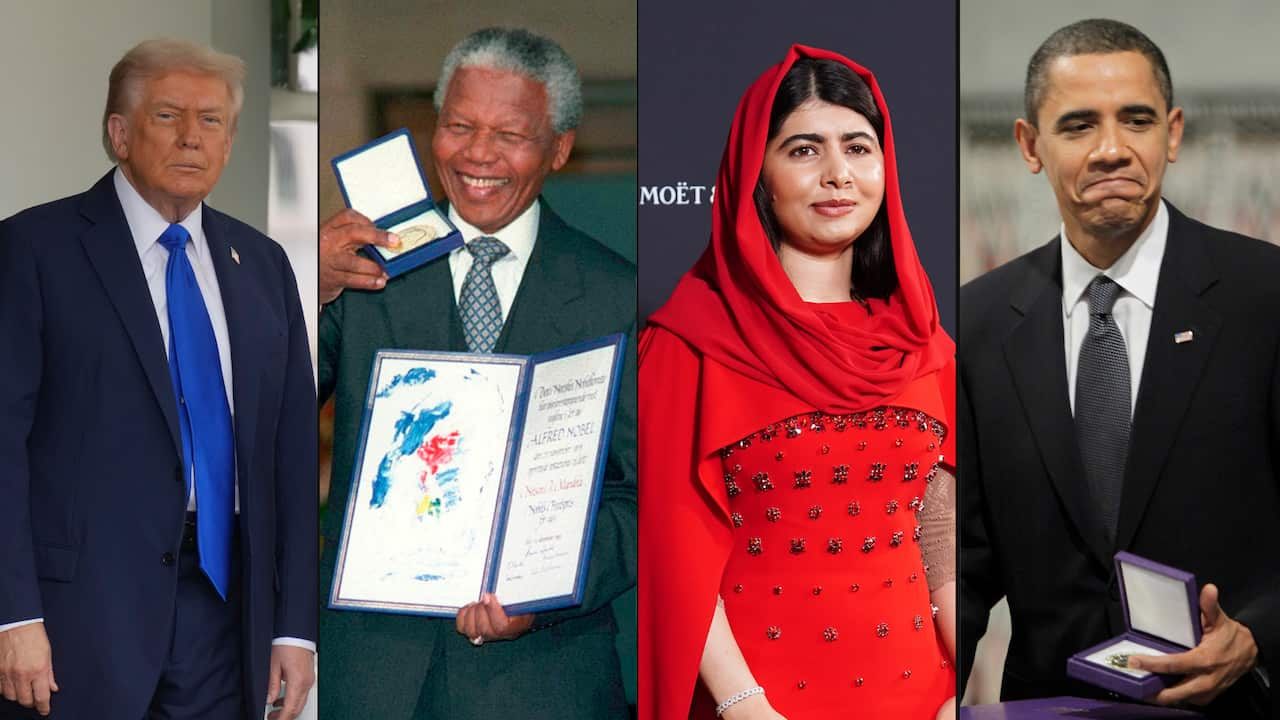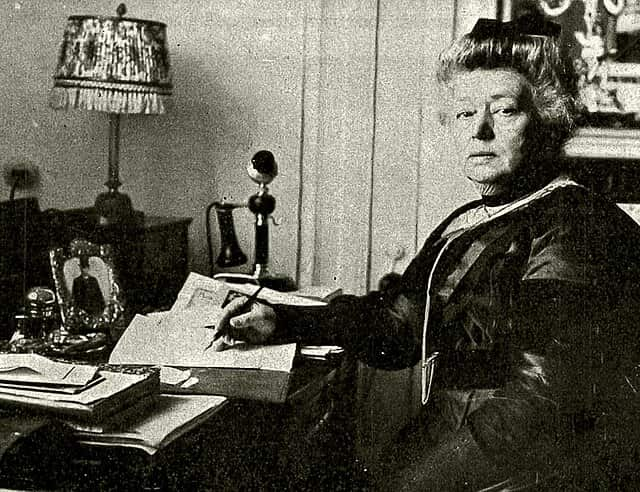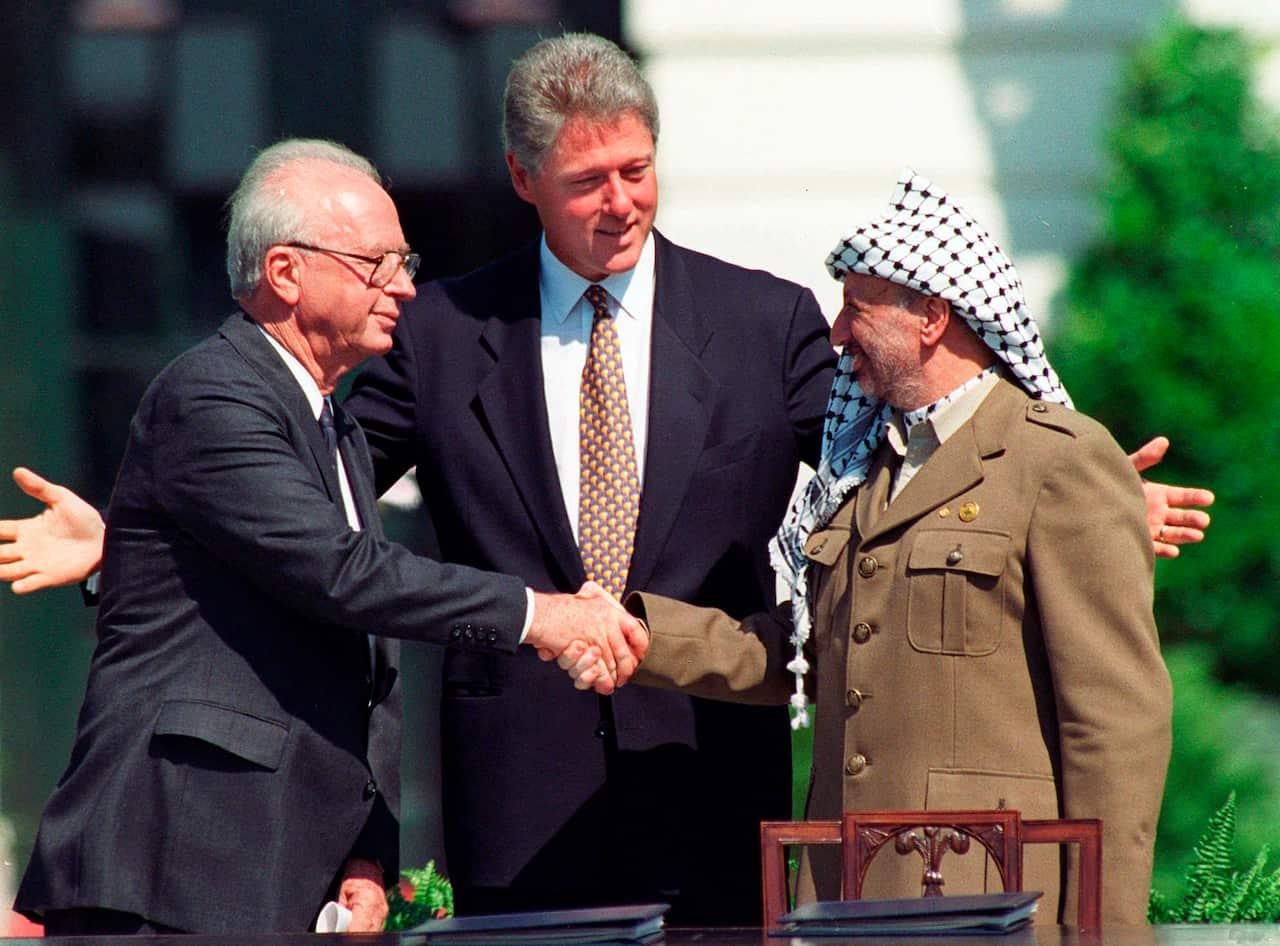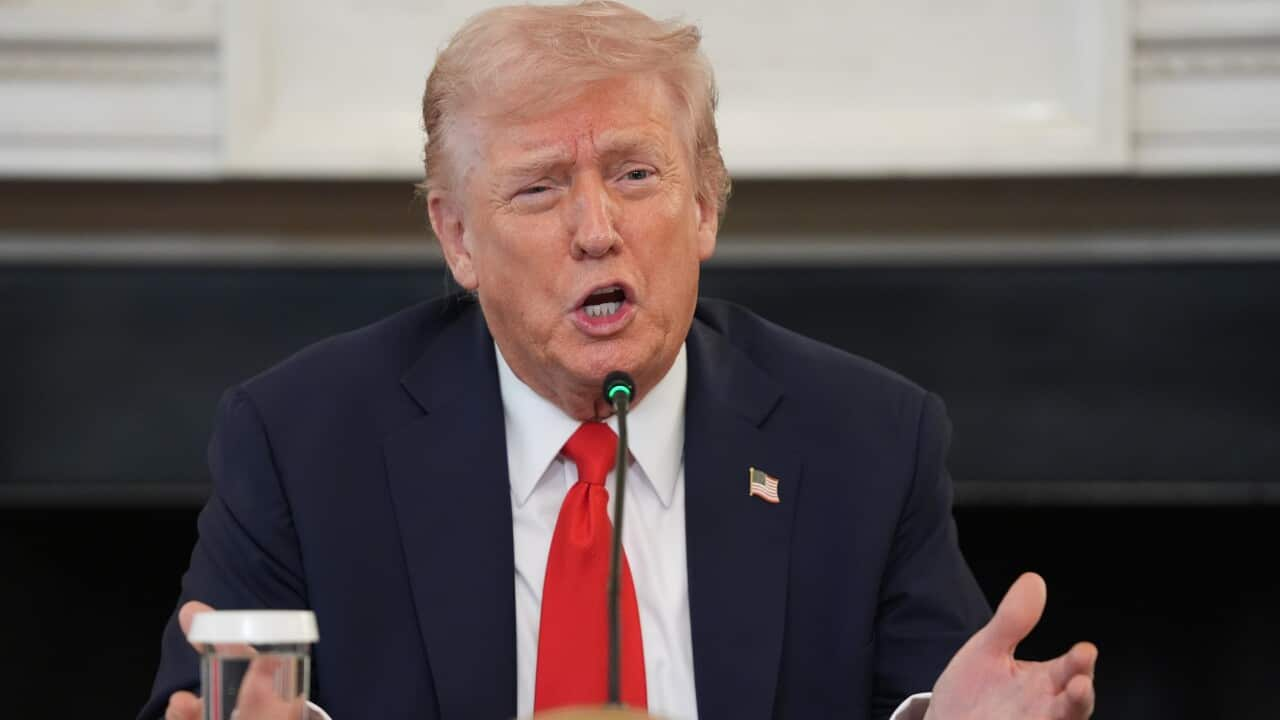United States President Donald Trump has made no secret of the fact that he wants to win the Nobel Peace Prize, but the award has so far eluded him throughout his two presidencies.
Trump's push for the prize — whose 2025 winner will be named on Friday at around 8pm AEDT — is fuelled by a potent mix of a desire for prestige and a long rivalry with former US president Barack Obama.
The announcements of Nobel prize winners are staggered over a week. They started with the award for medicine or physiology on Monday and will end with the unveiling of the winners in economics next Monday.
The awards, which are also handed out for outstanding achievements in physics, chemistry and literature, come with a prize amount of 11 million Swedish crowns (around $1.75 million) and bestow instant fame on recipients.
So, is Trump expected to win? And if not him, then who?
Is Trump expected to win?
Foreign leaders seeking to curry favour with Trump have been quick to talk up Trump's chances.
Israeli Prime Minister Benjamin Netanyahu nominated Trump for the prize, as did an Israeli advocacy group campaigning for the release of hostages in Gaza.
Pakistan also nominated Trump, while the leaders of several African countries paid tribute to his supposed peacemaking efforts in a visit earlier this year.
However, despite Trump's regular claims of having ended seven wars, experts don't think he's likely to take home this year's medal.

Swedish professor Peter Wallensteen, an expert on international affairs, told Agence France-Presse that Trump won't take home the prize this year, but perhaps in 2026, when "the dust will have settled around his various initiatives, including the Gaza crisis".
Numerous experts consider Trump's "peacemaker" claims to be exaggerated and express concerns over the consequences of his "America First" policies.
"Beyond trying to broker peace for Gaza, we have seen policies that actually go against the intentions and what's written in the will of [Alfred] Nobel, notably to promote international cooperation, the fraternity of nations and disarmament," said Nina Græger, who heads the Peace Research Institute of Oslo.
For Græger, the list of Trump's actions not aligned with the ideals of the Nobel Peace Prize is long.
Trump has withdrawn the US from international organisations and multilateral treaties, launched trade wars against allies and enemies alike, threatened to take Greenland from Denmark by force, ordered the National Guard into US cities and attacked universities' academic freedoms as well as freedom of expression.
"We take the complete picture into account," explained Jørgen Watne Frydnes, chair of the five-member committee awarding the peace prize.
"The whole organisation or the complete personality of that person matters, but what we first and foremost look at is what they have been actually achieving for the sake of peace," he said.
Who are the top picks for this year's Nobel Peace Prize?
This year, 338 individuals and organisations have been nominated for the peace prize, with the list kept secret for 50 years.
Tens of thousands of people are eligible to propose candidates, including politicians and cabinet members of all countries, former laureates, certain university professors and Nobel committee members.
In 2024, the award went to Japan's atomic bomb survivors' group Nihon Hidankyo for its efforts to ban nuclear weapons.
With no clear favourite this year, several names have been doing the rounds in Oslo ahead of Friday's announcement.
Sudan's Emergency Response Rooms — a network of volunteers risking their lives to feed and help people enduring war and famine — have been mentioned, as has Yulia Navalnaya, the widow of Kremlin critic Alexei Navalny, and the Office for Democratic Institutions and Human Rights election watchdog.
The Nobel committee could also choose to reaffirm its commitment to a world order currently being challenged by Trump by giving the prize to United Nations secretary-general António Guterres, or a UN body like its refugee agency UNHCR or Palestinian relief agency UNRWA.
It could also give the nod to international tribunals such as the International Court of Justice or the International Criminal Court, or champion press freedoms currently under attack by giving it to the Committee to Protect Journalists or Reporters Without Borders.
Who was Alfred Nobel?
The Nobel Prize was created by wealthy Swedish chemist and entrepreneur Alfred Nobel, who in his will dictated that the bulk of his estate should be used to fund "prizes to those who, during the preceding year, have conferred the greatest benefit to humankind".
Nobel is best known as the inventor of dynamite, but also wrote poetry and drama and could speak Russian, French, English and German by the age of 17. The five original prize categories reflect the interests closest to his heart.
Nobel spent much of his career developing weapons technologies and made a fortune from it, but later in life became a close friend of Austrian peace activist Bertha von Suttner.

Nobel died in 1896 but it took until 1901, following a legal battle over his will, before the first prizes were awarded.
The Nobel prizes are presented to the laureates on 10 December, the anniversary of Nobel's death, with guests are treated to a lavish banquet at Stockholm City Hall.
The menu, meticulously planned for months by some of Sweden's best chefs and sommeliers, is kept a secret until the food is served by 200 waiters.
Who awards the Nobel prizes?
Nobel selected the Royal Swedish Academy of Sciences to award the prizes for chemistry and physics, the Swedish Academy for literature, Sweden's Karolinska Institute medical university for physiology or medicine, and the Norwegian parliament for peace.
It is not known exactly why Nobel chose Norway to hand out the peace prize, though it could reflect that Norway and Sweden were linked in a political union at the time he penned his will.
In 1968, when Sweden's central bank was celebrating its 300th anniversary, it established the Prize in Economic Sciences in Memory of Alfred Nobel with a donation to the Nobel Foundation.
The prize is awarded by the Royal Swedish Academy of Sciences, according to the same principles as the other prizes.
The most famous and infamous Nobel laureates
Notable Nobel laureates include scientists Albert Einstein, Niels Bohr and Marie Curie, authors Ernest Hemingway and Albert Camus, and inspirational leaders such as Nelson Mandela, Martin Luther King Jr and Mother Teresa.
While most achievements are still celebrated, some awards have not aged well, such as Egas Moniz's 1949 prize in physiology or medicine for the since-discredited practice of lobotomy.

Many peace prizes have also been criticised, including those for Henry Kissinger, Yasser Arafat, Yitzhak Rabin and Shimon Peres.
Failure to give the prize to Mahatma Gandhi before his death in 1948 is also seen by many as a great oversight.
For the latest from SBS News, download our app and subscribe to our newsletter.

